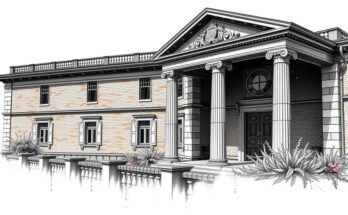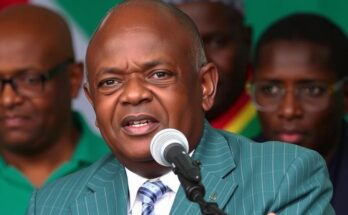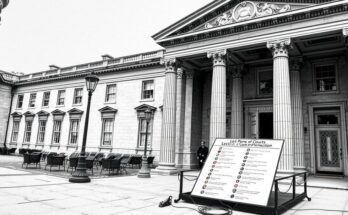Polls opened in Ghana’s presidential and legislative elections amid an unprecedented economic crisis. With 18.7 million registered voters, the election features Vice President Mahamudu Bawumia and former President John Dramani Mahama as primary candidates. Concerns over inflation and job shortages underscore the critical context of the election. Campaign promises reflect limited distinction between the main parties, raising questions about effective governance moving forward.
On Saturday, Ghana conducted its presidential and legislative elections, marking a significant moment for the nation’s democracy amidst a staggering economic crisis deemed the worst in a generation. With approximately 18.7 million registered voters, the election features Vice President Mahamudu Bawumia of the ruling New Patriotic Party (NPP) and former President John Dramani Mahama of the National Democratic Congress (NDC) as the primary candidates in a race with little expectation of meaningful change for the struggling populace.
Historically, Ghana has been lauded for its democratic stability, standing out in a West Africa often plagued by coups and civil unrest. However, the country now grapples with severe inflation and job shortages, with recent surveys indicating that 82% of citizens believe Ghana is on the wrong track. Despite a diverse field of candidates, the election has devolved into a contest primarily between Bawumia and Mahama, reflecting the limited options available to the electorate.
As the two leaders concluded their campaign efforts, Bawumia, aged 61, sought to instill confidence by promising continuity in the economic policies of the current administration, which he has served in a significant capacity. Conversely, Mahama, aged 65, emphasized the need for a comprehensive ‘reset’ of the nation’s structures and institutions, appealing to voters’ aspirations for fundamental change.
The air in Accra was charged with anticipation, as campaign activities thrived, punctuated by lively rallies and cultural expressions, signifying an upbeat electoral spirit. Nonetheless, the underlying sentiment regarding the economic turmoil remained critical, particularly following the country’s default on foreign debts, rising cost of living marked by over 54% inflation last year, and persistent issues linked to illegal gold mining.
In conclusion, Ghana’s elections are framed not just as a test of political choice but as a reflection of deeper socio-economic challenges. While the atmosphere is alive with electoral enthusiasm, the weight of financial hardship and pervasive discontent represents a sobering backdrop to the democratic process, raising questions about the path forward for this historically stable nation.
In recent decades, Ghana has established a reputation as a bastion of democratic governance in West Africa, distinguishing itself through a series of peaceful transitions of power. However, recent challenges, including rampant inflation and joblessness, have severely undermined this stability, leading to a critical assessment of the nation’s economic policies. The current elections occur against a backdrop of widespread disillusionment among the populace, with many expressing skepticism regarding the ability of the political elite to address pressing economic issues. Therefore, the upcoming elections will serve as a necessary referendum on the leadership that has been in place amid this deterioration.
Ghana’s recent elections reflect a pivotal moment for its democracy, positioned amid severe economic difficulties that have prompted widespread voter dissatisfaction. With the dominance of two primary candidates offering limited differentiation in their policies, the elections may not yield a transformative outcome. The broader implications involve addressing the substantial economic crises faced by the nation, necessitating leadership that can effectively navigate the complexities of governance while restoring confidence among the populace.
Original Source: www.newsday.com




